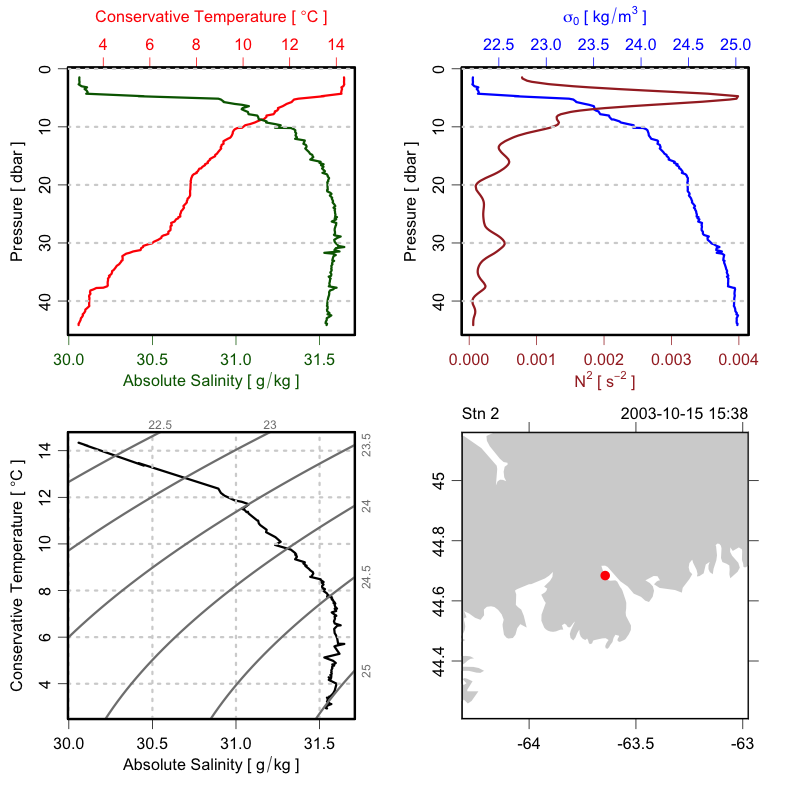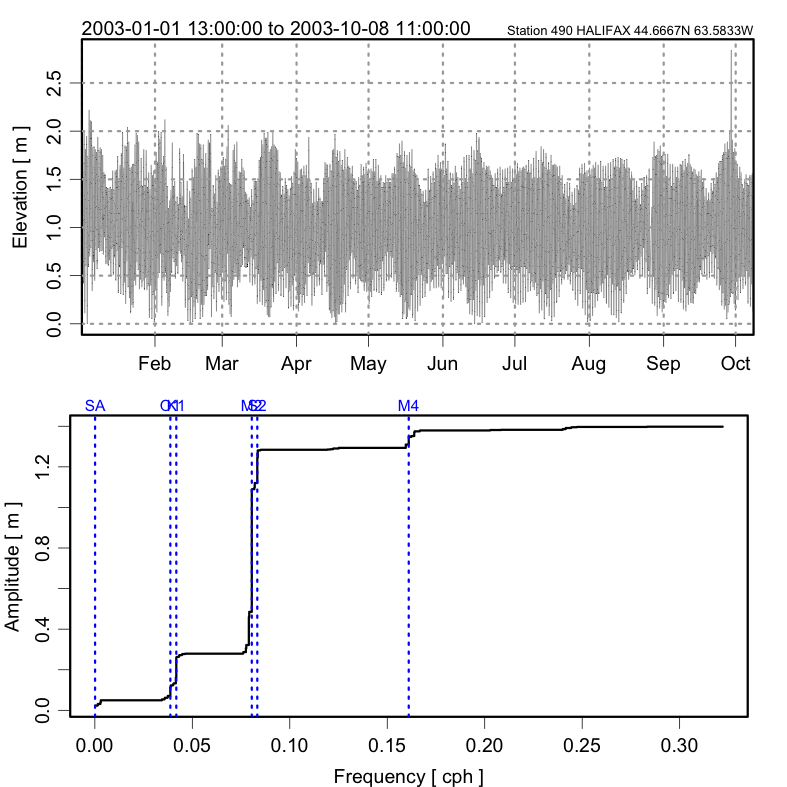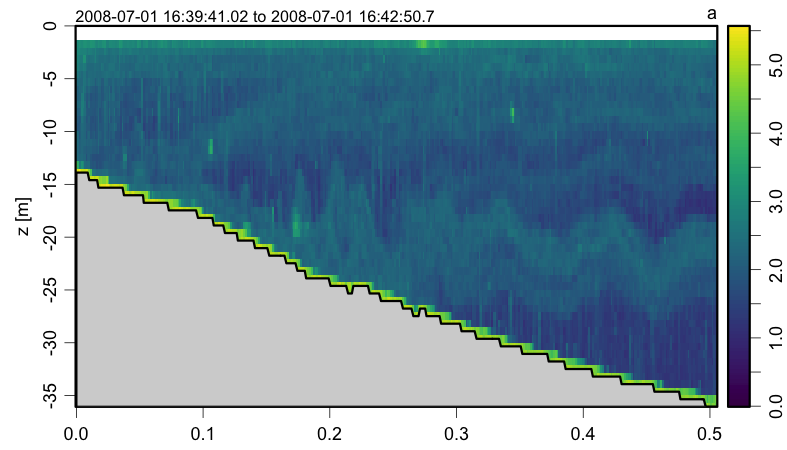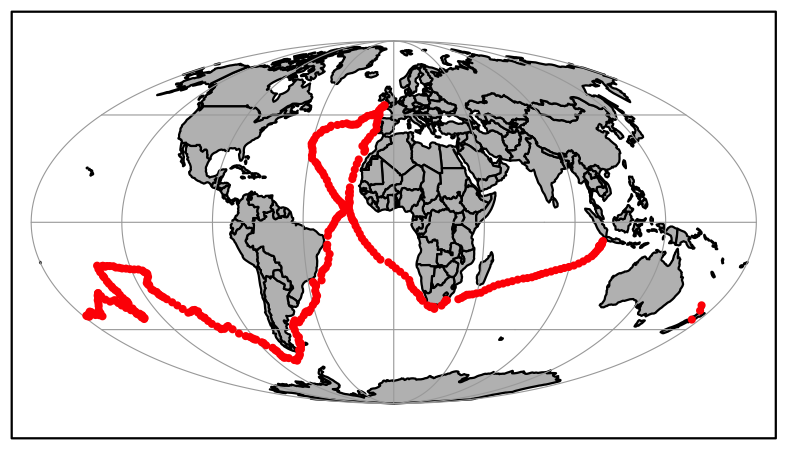The R language is popular in many branches of science, and Oceanography is not an exception. Perhaps because of its broad statistical support, R is especially popular in Biological Oceanography, and its popularity seems to be growing also among Chemical and Geological Oceanographers. In the remaining subdiscipline of Physical Oceanography, many researchers remain attached to Matlab, which was the strongest choice for interactive work in the late 1900s. However, the commercial and closed-source nature of Matlab is a problem in the eyes of many people, and so open-source alternatives have become increasingly popular. Of these, Python and R are the most popular languages at the moment, and many Oceanographers are conversant with each, switching between the two according to the task at hand. A strength of R in this regard is the availability of well-vetted and well-documented packages for handling a wide spectrum of specialized tasks. Of these, the oce package is particularly important.
The oce package handles a wide variety of tasks that come up in the analysis of Oceanographic data. Its webpage provides details, of which this README file is just a sketch. A book by one of the oce co-authors provides more information on the package and its potential for oceanographic research (Kelley, Dan E., 2018. Oceanographic Analysis with R. New York. Springer-Verlag ISBN 978-1-4939-8844-0).
Stable versions of oce are available from CRAN, and may be installed
from within R, in the same way as other packages. However, the CRAN
version is only updated a few times a year (pursuant to policy), so many
users install the "develop" branch instead. This branch may be updated
several times per day, as the authors fix bugs or add features that are
motivated by day-to-day usage. This is the branch favoured by users who
need new features or who would wish to contribute to Oce development.
The easy way to install the "develop" branch is to execute the
following commands in R.
remotes::install_github("dankelley/oce", ref="develop")
and most readers should also install Ocedata, with
remotes::install_github("dankelley/ocedata", ref="master")
Oce is emphatically an open-source system, and so the participation of users is very important. This is why Git is used for version control of the Oce source code, and why GitHub is the host for that code. Users are invited to take part in the development process, by suggesting features, by reporting bugs, or just by watching as others do such things. Oceanography is a collaborative discipline, so it makes sense that the evolution of Oce be similarly collaborative.
library(oce)
data(ctd)
plot(ctd, which=c(1,2,3,5), type="l", span=150)
library(oce)
data(adp)
plot(adp)
library(oce)
data(sealevel)
m <- tidem(sealevel)
par(mfrow=c(2, 1))
plot(sealevel, which=1)
plot(m)
library(oce)
data(echosounder)
plot(echosounder, which=2, drawTimeRange=TRUE, drawBottom=TRUE)
library(oce)
par(mar=rep(0.5, 4))
data(endeavour, package="ocedata")
data(coastlineWorld, package="oce")
mapPlot(coastlineWorld, col="gray")
mapPoints(endeavour$longitude, endeavour$latitude, pch=20, col="red")
library(ocedata)
library(oce)
data(landsat)
plot(landsat)






